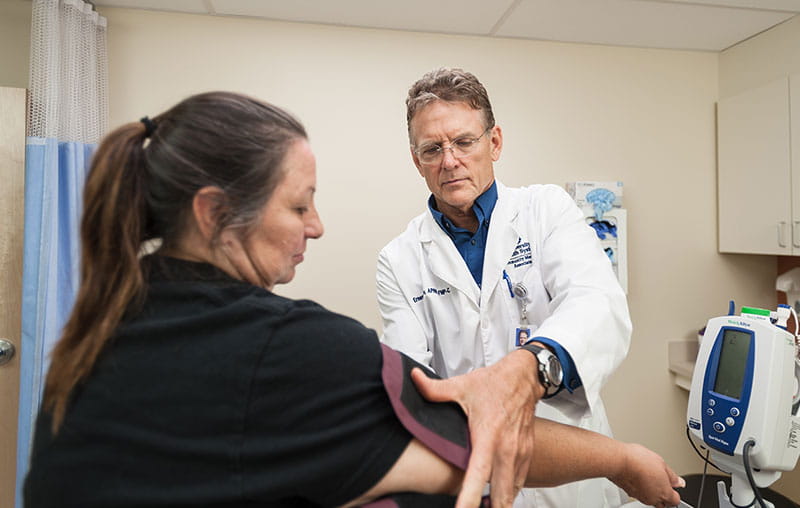Refugee Health
Refugees are people who leave their home country and can’t return because it’s too dangerous. When they leave, they look for protection in another country.
Refugees have unique health care needs when they get to their new country. Often, they have experienced trauma such as violence, loss, war and displacement.
In a new country, refugees may have trouble finding a place to live, building a support network and getting health care.
Common Health Conditions Experienced by Refugees
Most refugees flee their home countries due to war, poverty or persecution. Refugees may have little food, water, sanitation or medical care.
This puts refugees at a higher risk of physical health problems, such as:
- Burns
- Hypothermia, when body temperature drops below 95°F (35°C)
- Heat exhaustion or heat stroke
- Injuries
- Unintended pregnancy
- Trauma
Challenges Refugees Face
When refugees settle into their new lives in Bexar County, they may have problems getting the care and services they need. The San Antonio Welcoming Plan [PDF] lists common barriers refugees face:
- Cultural stigmas about getting mental or physical health care
- Inability to pay for medical treatment
- Lack of awareness about existing health care options
- Language barriers
- Lack of trust in health care institutions
- No identification documents needed to access services
- No transportation
In San Antonio, 64% of immigrants and refugees express distrust. Over 63% of immigrants surveyed said services in San Antonio were too expensive.
Improving Refugee Health
To improve their health and well-being, refugees need access to:
- Homes
- Jobs and income
- Mental health care
- Physical health care
- Education
Local communities play an important role in welcoming refugees. San Antonio’s Immigration Strategic Plan proposes ways to improve refugee care access. It suggests involvement from residents, local government and health care providers.
Ways to Support Refugees in Bexar County
- Talk about cultural beliefs that affect well-being, such as fear of vaccinations
- Give refugees free or discounted bus passes
- Make health care more affordable for refugees
- Offer health information in many languages
- Support refugees when they apply for identification and health insurance
- Spread awareness among medical providers and students about refugee health needs
- Use mobile health units to bring health care where it's needed
Refugee Health in Bexar County
The Refugee Processing Center shows that Texas resettled 5,039 refugees from various countries between Oct.1, 2022 and Sept. 30, 2023. That’s more than any other U.S. state.
According to the San Antonio Welcoming Plan, more than 200,000 immigrants and refugees live here. These groups make up over 14% of the city’s population. Since 2012, the immigrant population has accounted for more than half of the city’s growth.
Bexar County is home to immigrants and refugees from various countries. The most common countries of origin are:
- Afghanistan
- Bhutan
- Burma
- El Salvador
- India
- Iran
- Iraq
- Mexico
- Philippines
University Health Resources
Refugee Clinic
University Health's Refugee Clinic provides domestic medical screenings as part of the Office of Refugee Resettlement’s Refugee program. Services are limited to those prescribed by the CDC. Please call 210-644-7951 for more information.
Primary Care Clinics
University Health primary care clinics provide all the necessary health care services a refugee may need, including:
- Health screenings
- Immunizations/vaccinations
- Annual wellness visits
- Physicals
- Referrals to specialists
Our mobile family health units meet patients where they are, making health care more accessible to those without transportation.
ExpressMed Clinics
University Health’s ExpressMed Clinics provide walk-in care for mild to moderate illnesses and injuries. There are three locations throughout San Antonio.
Language Assistance
University Health provides language assistance to any patient who needs it. This helps ensure language is not a barrier to getting health care and communicating with a health care provider.
Building Bridges to Better Health is a Pashto/Dari medical interpretation program at University Health. It is grant-funded by the U.S. Office of Minority Health.
Community Resources
National Afghan Helpline
The U.S. Committee for Refugees and Immigrants helps resettle residents nationwide. They offer behavioral health support services. The national helpline gives 24/7 support and referrals for counseling.
Legal, Social & Advocacy Services
The Refugee and Immigrant Center for Education and Legal Services (RAICES) – Texas offers low-cost legal services, resettlement services and social programs. They also offer bond assistance and advocacy for refugees.
Immigration Liaison
San Antonio Office of the Immigration Liaison supports immigrants and refugees. It maintains a directory of resources for refugee families. The directory provides information about organizations that offer services to refugees.
The Center for Refugee Services
The Center for Refugee Services helps more than 1,000 resettled refugees each year in San Antonio. The Center provides education, health and wellness, employment services and community support.
San Antonio Refugee Health Clinic
UT Health San Antonio faculty and students collaborate to offer refugees health care at the San Antonio Refugee Health Clinic. Services include primary care, mental health, dental and physical therapy.



